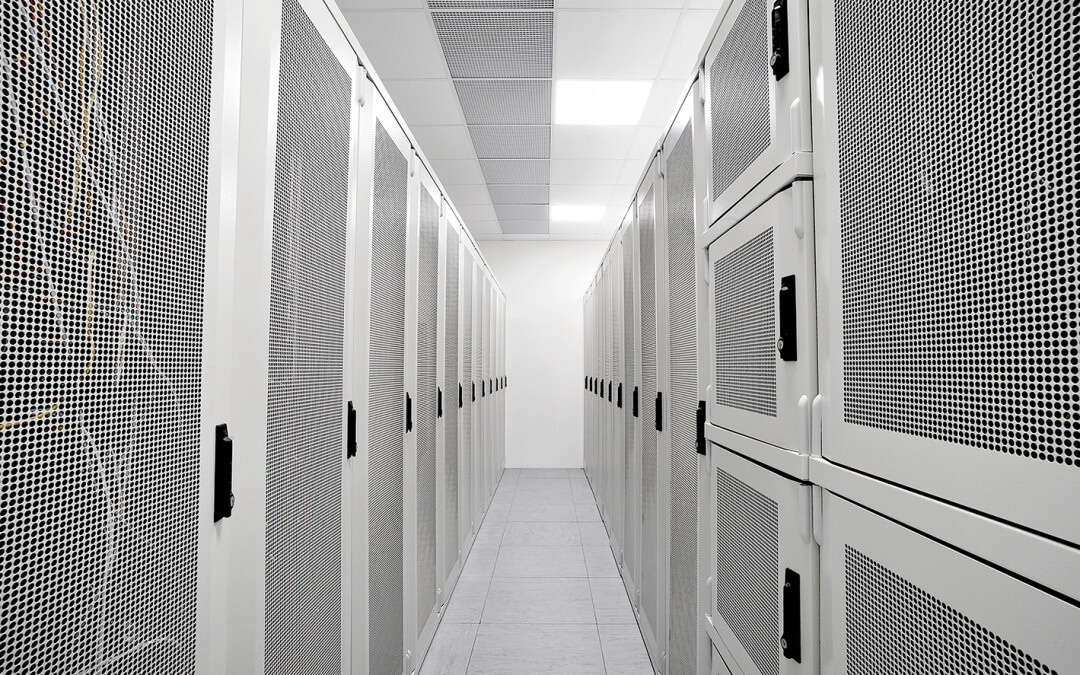by LDeX Group | Oct 14, 2016 | Blog
Denmark, the land of fresh air, beautiful scenery and captivating history, is set to be the new home of Facebook’s second Nordic-based data centre.
The California-based social media giant announced last week that it was planning to build the 184,000 square meter facility in Odense, the birthplace of writer Hans Christian Andersen, to store and manage its growing pool of data.
So, why Denmark?
Denmark is known for its clean energy. In fact, it’s a world leader in Cleantech and low carbon related industries. By 2020 the country should be producing half of its electricity from renewable sources. Since Mark Zuckerberg is lobbying to enhance connectivity with the smallest carbon footprint possible, this energy efficiency is likely to have been a big factor in Facebook’s decision to open a data centre there.
Facebook’s public move into these cleaner energy countries is promising, especially to environmentalists like ourselves. In early 2013 we switched our electricity supply to use only 100% renewable energy sources, meaning that all LDeX and client equipment within our data centre facilities are powered by green energy. We also provide carbon neutral colocation solutions to clients that help them to reach environmental impact targets.
Further to their miles of wind-farms, Denmark also has one of Europe’s best performing economies, making it even more appealing to global businesses like Facebook.
Whatever the reasons behind the move, European countries should be encouraged by Silicon Valley titans looking overseas to fulfil their technology requirements. After all, a move such as this one creates a wealth of jobs and attracts investment from far and wide.
Click here if you want to learn more about our environmental responsibility.

by LDeX Group | Oct 3, 2016 | Blog
Imagine the scenario, too many people, not enough places for them to live. Chaos. Well, this is what’s happening in the digital world.
Every device that has access to the Internet is registered to a unique IP address – this is used for identification and enables the devices to communicate over a network – but due to the exponential growth of the Internet these addresses are rapidly running out. So much so, the US has already come to an end of their allocation, and we may only have two years until they are all claimed on a global scale.
Enter IPv6, the most recent Internet Protocol, developed by the Internet Engineering Task Force to deal with the problem of IPv4 address exhaustion. Although there is still a small number of IPv4 addresses available, we need to prepare for when they are no longer available. Technology goliaths, like Apple and Microsoft, have ensured that their devices will automatically be assigned a IPv6 address, enabling businesses to connect to the IPv6 network. Businesses therefore need to ensure that their infrastructure also facilitates this.
Here at LDeX Group we pride ourselves on being forward-thinking, which is why we have been IPv6 enabled for six years. Our Dual Stack offering is free of charge to all our customers and ensures that they don’t get left behind and have a seamless transition from IPv4 to IPv6.
It’s time to prepare for the change and ensure your business is ready for the switch. Click here to find out more.
by LDeX Group | Sep 16, 2016 | Blog
ING Bank apologised to its customers in Romania this week after a planned test of its gas-based fire suppression system knocked its Bucharest-based data centre offline. This left users unable to carry out card transactions and access internet banking services over the weekend. The company’s ability to alert customers about the situation was also hindered by its email and text systems being unavailable due to the issue.
Although the Head of ING Bank’s retail division blamed the test for the problems, it was reported that the sound created by the release of the inert gas from the cylinders, as opposed to the substance itself, caused the data centre hardware to fail. The noise levels are said to have exceeded 130dB during the test, causing the hard disk drives inside the storage systems to vibrate and malfunction.
This is the first time I’ve heard of sound waves from a gas fire suppression system creating damage to hard disk drives, resulting in server failure, and this is highly unlikely to happen again. Nevertheless, freak scenarios such as this one prove how important multiple lines of defence are in data centre environments.
At LDeX Group we use a ‘double knock’ solution, meaning that smoke must be detected in two zones to trigger our gas fire suppression system, reducing the risk of a false positive. Our VESDA smoke detection is installed throughout our data centres to act as an early warning sign for any potential fires and the FM200 suppressant is designed to remove the oxygen, heat and fuel from a fire, extinguishing it within ten seconds.
If you want to know more about our offering and how ‘double knock’ can help you avoid situations like ING Bank’s, visit our website.

by LDeX Group | Aug 28, 2016 | Blog
You may have heard the news about the ‘smart energy’ revolution that the national grid has recently discussed, whereby consumers can adjust their energy consumption to use energy when its cheapest.
This scalable, pay-for-what-you-use model is becoming more and more popular for many consumers across industries, including the data centre sector. Flexible options that consider the consumers’ usage habits and place them at the heart of their interaction with the product are being adopted increasingly frequently.
The resulting reduction in cost is one reason for this – customers, whether they’re using electricity to store their data or energy to power their homes, obviously don’t want be paying for what they don’t use. However, another large part of this revolution stems from the providers themselves, who want to provide not just great customer experience, but a service that is friendly to the environment.
Here at LDeX, we’re very proud to be carbon neutral, and we always aim to help clients to reach their environmental impact targets with our services. Our data centres are powered by 100% renewable energy sources and use maximum efficiency cooling systems in order to avoid downtime whilst minimising energy waste.
With the rise of smart energy, we’re seeing businesses and consumers alike putting greener thinking at the heart of their product choices – a trend that we hope will continue to grow.
by LDeX Group | Aug 19, 2016 | Blog
Only a year since we opened our first Manchester-based data centre, we’re delighted to announce that due to continued growth and an uptick in customer demand, we are doubling capacity at our data centre campus in Trafford Park.
The new 20,000 sq. ft. site will house network carriers and global Internet Exchange Points (IXPs), with customers benefitting from support provided by our expert technicians, 24/7, 365 days a year. The state-of-the-art facility will also offer best-in-class carrier neutral colocation, network connectivity and streaming media satellite services to a large array of clients in the UK, Europe and the USA.
Commenting on the expansion plans, Rob Garbutt, CEO of LDeX Group, had this to say: “Doubling capacity within a year is a great achievement and I’m proud to say we’ve hit this goal significantly quicker than we anticipated. I put it down to our fantastic team offering outstanding customer service to our customers in many different time zones with often complex problems that we are able to resolve.”
“We have gone from strength to strength since we established in 2011 and this expansion underlines the fact that there is real demand for colocation and data centre services in the region. I’m looking forward to providing great service to even more organisations in the North West and beyond.”
Located a short distance from the M60 and M602 motorways, our northern data centres provide great local connections and a gateway to the North and South. They are also easily accessible to Manchester Airport. If you’re interested in seeing the space, book a tour here.

by LDeX Group | Jul 25, 2016 | Blog
Many businesses now rely entirely upon their stored data for day to day functioning. This is why it’s crucial to ensure it can easily be recovered if anything goes wrong. That’s where our Backup-as-a-Service (BaaS) platform comes in. Far from just a transient acronym, it’s here to stay, and its more important than ever.
We’ve had enough experience to understand just how valuable data can be. But while more data is created every day, the threats to it are also increasing. From the rise of BYOD to ransomware and natural disasters, corporate data is often in the firing line.
It’s important for organisations to know that they can recover their data in any situation – whether it’s a network-wide disaster, or an accidental loss of data from a single device. It needs to be an efficient and easy process, and one that secures the entire system, from the endpoint to the network.
We recognise this, which is why we’ve launched our Backup-as-a-Service platform, powered by Asigra’s converged data protection platform. Asigra Cloud Backup™ offers an incredibly flexible solution, as it can be tailored to physical or virtual environments, as well as the hybrid, private or public cloud. It’s one integrated system that offers peace of mind for businesses.
As part of our launch of BaaS, we have invested in Asigra training for our team. Our latest engineers to become Asigra certified are Andy Smith and Zak Hilton, meaning that they are now qualified to manage Asigra Cloud Backup™ in our data centre environments, as well as creating and using backup sets and deploying physical and virtual DS-Systems.
We’re serious about keeping data safe, and provide the best training for our employees, so that you feel confident about putting your data into our hands.



